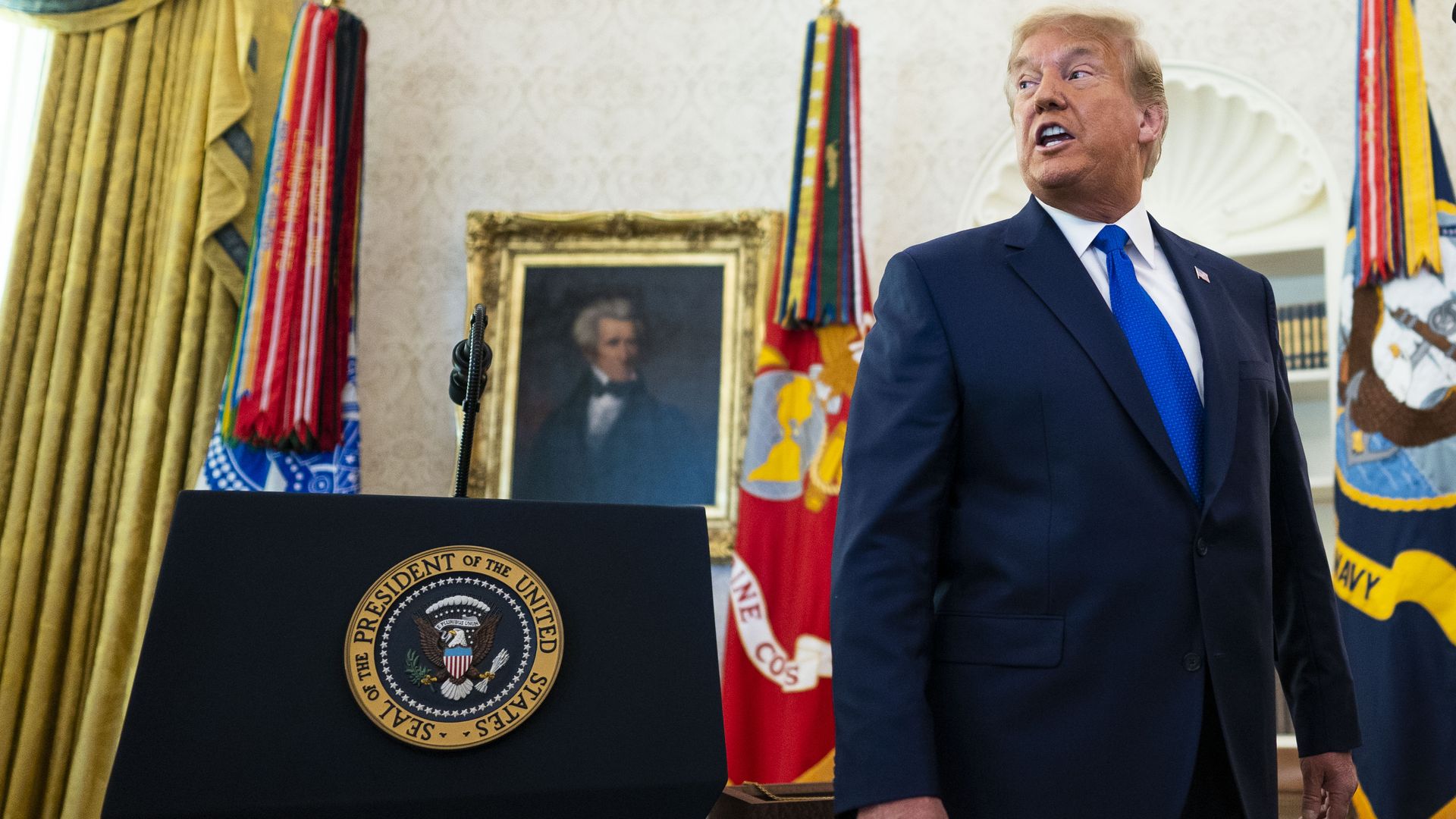Dec 8, 2020 - Politics & Policy
House passes defense spending bill with veto-proof majority despite Trump opposition
Add Axios as your preferred source to
see more of our stories on Google.

President Trump in the Oval Office on Dec. 7. Photo: Doug Mills-Pool/Getty Images
